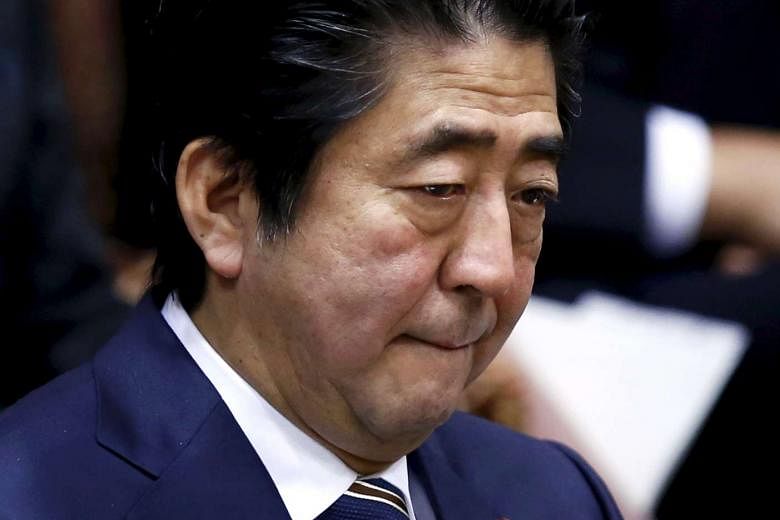TOKYO (Reuters) - Prime Minister Shinzo Abe on Thursday (Dec 17) welcomed a South Korean court's not-guilty ruling on a Japanese journalist, saying it was expected to have a positive effect on relations between the two countries.
The South Korean court found a Japanese journalist not guilty of defaming President Park Geun-hye in a case that has inflamed the two countries' diplomatic ties and raised questions about freedom of the press in South Korea.
"I appreciate the not-guilty ruling. I expect that it will have a positive effect on the Japan-South Korean relationship,"Abe told reporters shortly after the court ruling.
Tatsuya Kato, former Seoul bureau chief of Japan's Sankei Shimbun newspaper, was indicted in October last year when prosecutors said a report he wrote in August over President Park Geun-hye's whereabouts during a ferry disaster was based on false information, had no foundation and damaged her honour. "
The court views the conduct of the defendant was in the realm of freedom of the press," Judge Lee Dong-geun said at the conclusion of a three-hour hearing, speaking for a three-judge panel.
"It is difficult to conclude that the defendant intended to defame the president or libel her as a public figure."
Prosecutors had sought an 18-month prison term.
The case drew criticism from media and human rights watchdogs over Park's stance on freedom of the press and fuelled worry that the legal system could be used to stifle political opposition.
Kato had remained free during the months-long proceedings. A ban on him travelling overseas was lifted in April.
South Korea's foreign ministry had asked the court to consider Japan's request for leniency given the two countries'recent efforts to improve ties.
Relations between the neighbours are strained over what South Korea sees as Japanese leaders' reluctance to properly atone for the country's colonial wartime past, especially over the issue of Korean "comfort women", as those forced to work in Japanese military brothels during World War Two are known.
The verdict came amid a politically charged debate over a decision by Park's government to remove privately published textbooks from schools and replace them with a government-issued version.

